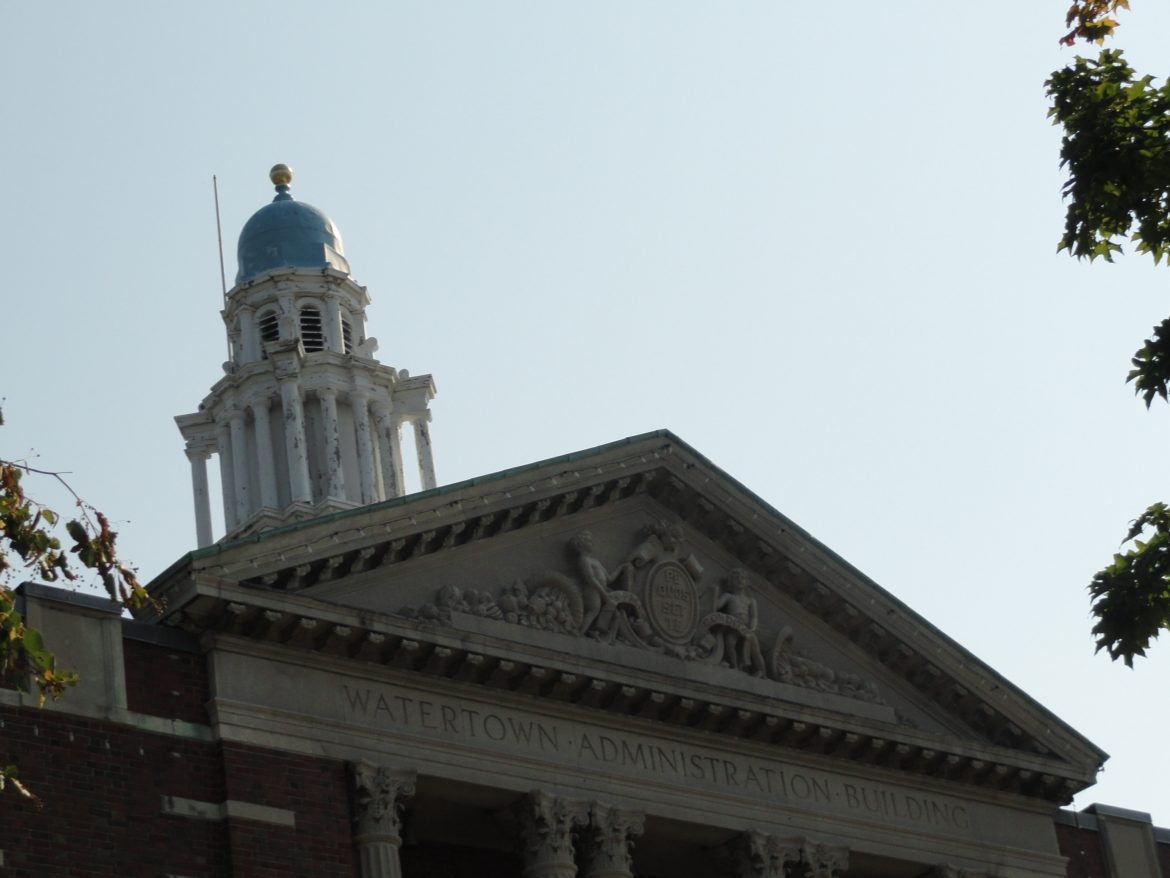
Charlie Breitrose
Watertown’s Town Hall.
The Town Council adopted some rules and regulations for anyone interested in opening a medical marijuana dispensary in Watertown.
At Tuesday’s meeting, the Council adopted several items that had been recommended by the Economic Development and Planning Committee. The subcommittee held a hearing in October to discuss dispensaries, and hear from some groups looking at opening marijuana facilities in town.
No applications have been received by the town, but the Town Council wants to get rules into place before one comes forward. A handful of groups have approached the town inquiring about starting a facility in town, including one looking at a spot on Dexter Avenue and another on Elm Street.
Instead of setting a limit on the number of possible dispensaries, the committee recommended considering each application separately and also require them to get a Letter of Support from the Council or one stating the Council does not oppose the dispensary.
East End Town Councilor Angeline Kounelis has previously spoken out about her concern that most of the areas where a medical marijuana dispensary could go (industrial zones) in Watertown are on the Eastside of town. On Tuesday, she said she supported the idea of requiring applicants to get the letter of support from the Council.
“This is a serious issue in front of us,” Kounelis said. “It is not whether medical marijuana should be used or not – that is an issue between a patient and physician.”
For the state to approve a facility, a letter of support from the town is necessary for it to go ahead, Town Attorney Mark Reich wrote in a letter to Kounelis, she said.
The Council approved the requirement of the letter of support 8-0.
Another requirement for facilities is coming up with a host agreement, where the operators agree to pay the town a fee to offset the cost of town services provided to the dispensary, as well as other stipulations.
During debate, Councilor Tony Palomba said he was uneasy requiring the dispensaries, which are non-profit groups, to give the town money in order to operate in Watertown.
“I like to see it as a public service they give to people who have prescriptions for medical marijuana,” Palomba said.
The host agreements do not only include the financial aspect, Reich said, but goes into other areas.
“These facilities put an unusual stress on communities,” Reich said. “The agreement also allows them to state their philosophy of how they will fit into the community.”
One of the stresses on communities, Reich said, is increased policing.
“They are expecting to have more police presence. They are a cash business – they don’t take credit cards,” Reich said. “They welcome more police monitoring.”
The other items included in a host agreement are items such as the size of the facility, hours of operation and security, Reich said.
The Council voted unanimously to approve the host agreements.
Another requirement for applicants is including a statement about whether they will have home delivery before getting a letter of support or of non-opposition.
The Council also decided to let the permit granting authority be the board that determines hours of operation of a marijuana facility. In most cases the permit granting authority would be the Zoning Board, but it would be the Planning Board if a facility seeks to go in to the Pleasant Street Corridor District on the westside of town or the Regional Mixed Use District near Arsenal Street.
Finally, the Council asked Assistant Town Manager Steve Magoon to inquire about creating a zoning amendment or regulations that, among other things, would make a minimum distance between dispensaries.